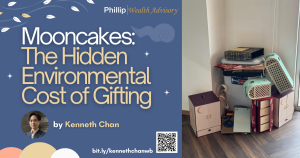100% Spenders in Singapore: How to Break Free from Living Paycheck to Paycheck September 17, 2025

In 2024, 78.3 per cent of companies in Singapore granted wage increases as compared to 65.3 per cent in 2023, according to the Ministry of Manpower’s Report on Wage Practices 2024 1. Despite this growth in earnings, there are still people who end up with no savings every month, specifically 29%, according to a survey done by Sun Life Singapore 2. These are what I call “100% spenders”; every dollar that comes in goes straight out, leaving no savings, let alone investments. On the surface, they may look financially comfortable, but in reality, they are only one emergency away from financial stress.
When asked about their lack of savings, familiar replies surface: “Life is expensive in Singapore” or “I’ll save when I earn more.” But the real reason is not just the cost of living; it is also how easy spending has become, combined with a culture that encourages greater consumption as incomes rise.
The Ease of Spending
Take PayNow, for example. It has become second nature to users to scan a QR code and pay within seconds. A recent study found that 68% of Gen Z in Singapore prefer PayNow as their main mode of payment 3.
This convenience is good for efficiency, but it also makes spending too easy. When spending cash, you physically see the notes leaving your wallet; a more conscious action which reminds you of your accumulative expenses over time. With PayNow and contactless credit cards, no physical cash leaves your hands, making it easy to lose track of how much you are actually spending. The same applies to installment plans. Platforms like Atome have become extremely popular, especially among younger consumers. Research shows that 77% of Gen Z in Singapore have used Buy Now, Pay Later (BNPL) services, compared with fewer than half of millennials and only 13% of boomers. 4 Atome alone has over 1.3 million registered users, mostly aged between 21 and 45. 5
It is not uncommon to see young clients juggling four or five instalments at once. Each one is small, perhaps a few hundred dollars for clothes or gadgets, but together they consume a large portion of monthly cash flow. Debt becomes normal before savings have a chance to take root.
Lifestyle and Culture
Technology is only part of the story; the bigger driver is lifestyle inflation and social pressure.
As income rises, so do expectations. What was once a luxury — dining out, travel, or premium subscriptions — quickly becomes a necessity. Social media amplifies this, making conspicuous consumption part of everyday life, fueling consumers’ urge to “keep up”.
The reality is that most adult Singaporeans understand the basics of savings, having been taught the mechanics of compulsory savings under the CPF scheme. The issue is not financial literacy but the gap between knowledge and action. It is less about what people know and more about taking responsibility for putting that knowledge into practice.
Building Systems That Work
Discipline and will power rarely sustain long-term financial change. What works far better is creating a system that makes saving automatic, much like CPF does.
- Create a personal CPF-like savings or investment account. As soon as your salary is credited, arrange for a fixed portion, usually 15 to 25 per cent, to be automatically deposited into this separate account. Treat it as untouchable. Over time, it will grow into an emergency fund, long-term savings, or investment capital.
- Reframe instalments. If you are comfortable committing S$100 a month to fashion or gadgets, why not redirect that same amount into a savings plan or a regular investment? When used wisely, instalments for regular savings can build assets, not debts.
- Manage lifestyle inflation. Rather than upgrading your lifestyle every time income increases, tie those upgrades to net-worth milestones. This helps to ensure lifestyle growth does not outpace wealth growth.
The Results
With systems in place, change often happens naturally. People who once struggled to save may find their balances growing steadily. Those who claimed “I just can’t save” realise they can, because the system does it for them.
This is not about cutting out joy or living with harsh restrictions; it is about structuring finances so that both spending and saving are intentional. By automating positive habits, the cycle of being a “100% spender” can finally be broken.
Final Thoughts
In Singapore, spending has never been easier. With modern technology, every temptation is just a tap away. But while technology and culture encourage us to consume, only responsibility and structure can create long-term security.
The key is to build systems that make saving and investing a habit, not a choice. That is how “100% spenders” transform into wealth builders — and achieve financial freedom.
Contributor:

Joshua Lim
Wealth Manager
Phillip Securities Pte Ltd (A member of PhillipCapital)
https://bit.ly/TTPjoshualim
Appendix:
- [1] https://www.ntuc.org.sg/uportal/news/Nominal-and-real-wages-grew-in-2024-but-are-expected-to-taper-in-2025/
- [2] https://finance.yahoo.com/news/large-part-singapore-unprepared-retirement-123057707.html
- [3] https://www.xero.com/us/media-releases/digital-payment-trends-singapore-gen-z-leading-shift/?utm_source=chatgpt.com
- [4] https://www.channelnewsasia.com/today/big-read/buy-now-pay-later-debt-credit-4846131?utm_source=chatgpt.com
- [5] https://www.magzter.com/stories/newspaper/The-Straits-Times/YOUTH-IN-SINGAPORE-BUYING-INTO-BUY-NOW-PAY-LATER-SERVICES-REPORT?srsltid=AfmBOor-Ell17DenCu69OwzKn5QiL0V8nczkM5cCFGoKuiUwhSLZ58tY&utm_source=chatgpt.com
Disclaimer
These commentaries are intended for general circulation and do not have regard to the specific investment objectives, financial situation and particular needs of any person. Accordingly, no warranty whatsoever is given and no liability whatsoever is accepted for any loss arising whether directly or indirectly as a result of any person acting based on this information. You should seek advice from a financial adviser regarding the suitability of any investment product(s) mentioned herein, taking into account your specific investment objectives, financial situation or particular needs, before making a commitment to invest in such products.
Opinions expressed in these commentaries are subject to change without notice. Investments are subject to investment risks including the possible loss of the principal amount invested. The value of units in any fund and the income from them may fall as well as rise. Past performance figures as well as any projection or forecast used in these commentaries are not necessarily indicative of future or likely performance.
Phillip Securities Pte Ltd (PSPL), its directors, connected persons or employees may from time to time have an interest in the financial instruments mentioned in these commentaries.
The information contained in these commentaries has been obtained from public sources which PSPL has no reason to believe are unreliable and any analysis, forecasts, projections, expectations and opinions (collectively the “Research”) contained in these commentaries are based on such information and are expressions of belief only. PSPL has not verified this information and no representation or warranty, express or implied, is made that such information or Research is accurate, complete or verified or should be relied upon as such. Any such information or Research contained in these commentaries are subject to change, and PSPL shall not have any responsibility to maintain the information or Research made available or to supply any corrections, updates or releases in connection therewith. In no event will PSPL be liable for any special, indirect, incidental or consequential damages which may be incurred from the use of the information or Research made available, even if it has been advised of the possibility of such damages. The companies and their employees mentioned in these commentaries cannot be held liable for any errors, inaccuracies and/or omissions howsoever caused. Any opinion or advice herein is made on a general basis and is subject to change without notice. The information provided in these commentaries may contain optimistic statements regarding future events or future financial performance of countries, markets or companies. You must make your own financial assessment of the relevance, accuracy and adequacy of the information provided in these commentaries.
Views and any strategies described in these commentaries may not be suitable for all investors. Opinions expressed herein may differ from the opinions expressed by other units of PSPL or its connected persons and associates. Any reference to or discussion of investment products or commodities in these commentaries is purely for illustrative purposes only and must not be construed as a recommendation, an offer or solicitation for the subscription, purchase or sale of the investment products or commodities mentioned.
This advertisement has not been reviewed by the Monetary Authority of Singapore.
About the author
Joshua Lim
Wealth Manager
Phillip Securities Pte Ltd (A member of PhillipCapital)
Joshua Lim is a Financial Representative at Phillip Securities Pte Ltd. His wealth journey began at the age of 15, when a fascination of how markets moved and how money could grow if managed wisely sparked over a decade of personal investing and experience, eventually leading to his career as a Wealth Manager.
Joshua is part of a team collectively servicing assets exceeding S$250 million and supporting more than 5,000 clients. Outside of work, he enjoys football and staying active through regular exercise.

 Protecting More Than Just Walls: Fire Insurance vs Home Insurance
Protecting More Than Just Walls: Fire Insurance vs Home Insurance  Before the Year Ends: Key Financial Steps for a Confident 2026
Before the Year Ends: Key Financial Steps for a Confident 2026  The ILP Debate: Why Singaporeans Struggle With Financial Product Decisions
The ILP Debate: Why Singaporeans Struggle With Financial Product Decisions  Mooncakes: The Hidden Environmental Cost of Gifting
Mooncakes: The Hidden Environmental Cost of Gifting 






